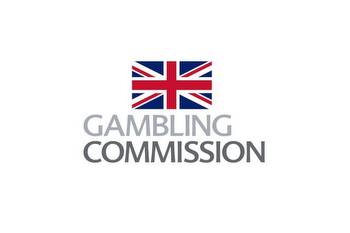Regulation In The Online Casino Industry Increasingly Eats Up Operator Profits

The online casino industry has been around since the 1990s. Antigua and Barbuda became the first overseas licensing jurisdiction with the Free Trade & Processing Act in 1994, and developer Microgaming helped spearhead the launch of the industry as the first functional casino software company. By 1996, over 200 gambling websites had launched, but the online gambling industry was unregulated with most operators residing in tax havens and customers having next to no protections. Today, a majority of countries now regulate online gambling, including the UK, which is now home to the largest regulated market in the world. While all of these restrictions help customers, they’ve also been damaging to operators.
The UK: Front-runner in gambling regulation
The UK Gambling Commission usually referred to as the UKGC, is the organisation responsible for regulating all aspects of in-person and online gambling across the nation, including sports betting, bingo, lotteries, traditional casino games, arcade, and more. The organisation was founded in 2005 as part of the Gambling Act 2005, but it wasn’t until 2007 that the organisation took all responsibility from the Gaming Board for Great Britain, which was responsible for regulating the industry beforehand.
The UKGC has shared its aims, which include preventing gambling from being a source of, associated with, or used to support crime. The regulatory body also aims to ensure that gambling, including in-person and online, is conducted in a fair and open way and aims to protect children and all vulnerable people from experiencing gambling-related harm.
To achieve its aims, the UKGC has enforced a strict regulatory framework. All operators looking to offer their services in the United Kingdom must obtain licenses from the UK Gambling Commission, including an operating license, a personal management license, and a personal functional license. To obtain these licenses, operators are required to follow the Commission’s License Conditions and Codes of Practice (LCCP), which denote how operators run their service.
These license conditions and codes require operators to implement a minimum age limit of 18 and conduct identification and verification checks to protect young people from gambling. Some other conditions include requiring operators to clearly display the conditions of bonuses and promotions offered, clamp down on money laundering, offer tested and fair casino games, and requiring operators to register with self-exclusion service GAMSTOP.
The UKGC is constantly reviewing and implementing changes to its license conditions, with one recent change being a complete ban on players using credit cards for gambling. Operators that fail to adhere to these conditions can be fined or have their licenses suspended, meaning they can no longer offer their services within the nation.
While other licensed jurisdictions have struggled with the regulation of online gambling, the UKGC has remained hugely successful and, as mentioned, remains one of the largest regulated markets in the world. Despite its success over the years, the Commission has also been subject to criticism that its licensing conditions are too strict.
Regulation pushes small operators out of the market
While regulation in the UK is great and essential to protecting customers, it harms operators, particularly smaller ones. There are numerous reasons for this, but one of the most important factors is that the UKGC’s enhanced verification checks, where users must share documents like passports and bank statements before being allowed to deposit or play games, can lead to lower conversion rates. This means that these strict checks, although great for protecting vulnerable people, usually prevent users from fully registering with the website and playing, which is bad for the operator’s business.
What’s more, the UKGC’s continually changing stance on payment options, such as its recent ban on credit cards and any future potential bans, can lead customers to avoid playing at an online casino and other gambling websites. This, in turn, leads to a reduced income for operators in an already highly competitive industry.
In addition to all of the above, the Commission and the Advertising Standards Authority (ASA) have become increasingly strict on advertising and social responsibility, which means operators, no matter how big or small, are now required to be more vigilant when it comes to promoting their gambling products and promotions associated with their services. Operators that mislead customers or break the ASA’s code of conduct are penalised with hefty fines that small operators can struggle to pay. This makes it all the more risky and difficult to run an online gambling website in the United Kingdom under the UKGC’s rules.
All of this makes it incredibly hard for a small operator to thrive in the UK regulated market. These small operators constantly face a drop in revenue but are usually required to hire additional staff to help them carry out checks and meet all of the licensing conditions required of them. So, while these regulations are great, they do make it much harder for smaller operators and can sometimes lead these firms to avoid the UK market altogether.
Gambling companies increase market share through sister sites
To combat the ongoing restrictions, operators have managed to increase their market share by launching sister sites, which are online casinos or gambling websites running on the service with an alternative designed to attract new users. These sister sites operate under the same UKGC license and will offer the same games, customer support service, and accept the same payment methods. When it comes to promotions, most sister sites will offer similar bonuses, but these can sometimes change, particularly if the sister site is new on the market.
While these sister sites essentially offer the exact same services, their alternative design attracts new customers. For example, a casino group operating a site themed on Vegas, a creative sci-fi story, and the Greek Gods all attract different players, particularly if the promotions and other services are based on these themes too. Attracting more customers provides operators with additional income and helps circumvent any issues they encounter when offering their services in the UK under the Gambling Commission.
Less profit for casinos means more safety for players
As we’ve already mentioned, regulation within the gambling industry, particularly strict regulation like the UK Gambling Commission, is incredibly tough for gambling operators. These tight restrictions are constantly changing too, which makes them even more difficult for operators and can easily lead them to lose revenue. However bad and restrictive these rules are for operators, they’re necessary for customers. These rules, codes and conditions all ensure that players are kept safe when playing games, aren’t misled when claiming promotions and prevent vulnerable people and minors from developing gambling-related harm. Most importantly, they work together to provide players with the best experience possible, which is what gambling is all about.





































